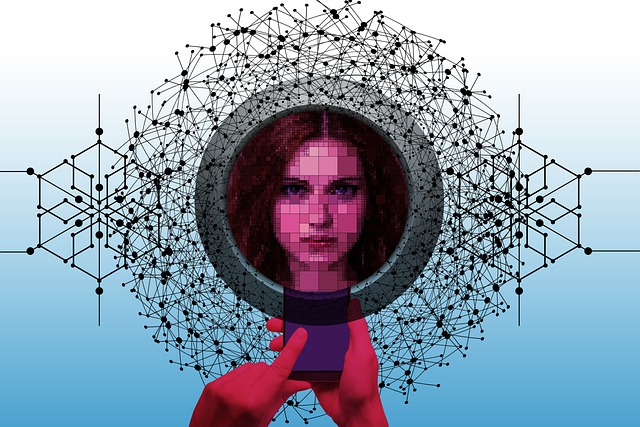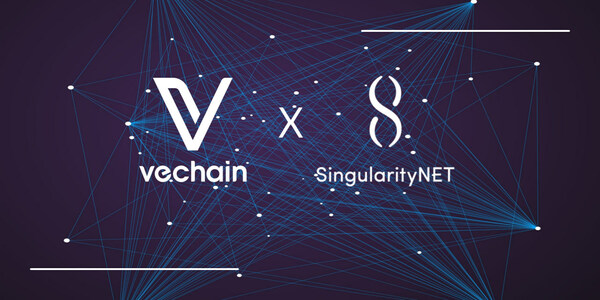The advent of artificial intelligence (AI) has revolutionized the way businesses operate and interact with their customers. In particular, the marketing and customer service field has seen a significant shift toward incorporating AI technologies. From chatbots and virtual assistants to machine learning algorithms, AI is utilized in various ways to improve customer engagement, increase efficiency and drive sales.
One of the most prominent applications of AI in marketing and customer service is chatbots and virtual assistants. These computer programs are designed to mimic human conversation and can provide quick and accurate responses to customer inquiries 24/7. This is especially beneficial for businesses that operate globally, as chatbots can handle multiple languages and time zones. Implement chatbots in your business with the expertise of professionals at Managed IT Services Sacramento.
Read this blog on how artificial intelligence revolutionizes customer service and can be leveraged in marketing strategies to impact your customer experience journey.
What is AI in Marketing?
Artificial intelligence marketing uses AI software to automatically create, optimize, and market products using computer algorithms. AI marketing intelligence can help reduce customer service workload by automating tasks. As a result, customer service representatives can focus on providing exceptional customer experience instead of repetitive manual tasks. In addition, it can help identify customer needs and preferences. With the use of artificial intelligence, customer analytics, and machine learning, marketing teams can quickly identify customer needs and develop marketing strategies that are relevant and tailored to them.
Marketing and AI can help improve customer retention rates. By using artificial intelligence in marketing automation strategies, marketers can personalize campaigns and email content for customers based on their behavior or past interactions with the brand. This personalization helps retain customers and increase their engagement with the brand. In addition, AI marketing can help resolve customer complaints quickly and efficiently. With the use of artificial intelligence in customer data analytics and predictive modeling, a marketer’s team can analyze a customer’s data to determine potential problems and suggest possible solutions easily without having to take similar actions across many customers repeatedly.
6 Benefits of AI in Marketing and Customer Service
- Automated Image Recognition
Artificial intelligence (AI) has the potential to automate customer service processes and provide valuable data to help organizations improve customer experience. For example, it can identify customer profiles, track customer interactions, and predict customer needs. This information can help organizations tailor customer service interactions to meet customers’ needs better. Additionally, artificial intelligence in marketing campaigns can help companies target a specific customer demographic or build a more personalized marketing strategy.
By using artificial intelligence in marketing campaigns, companies can target a specific customer demographic or build a more personal marketing strategy. Overall, artificial intelligence has the potential to automate a range of customer service tasks and provide valuable data that helps organizations improve their customer experience.
- Improved PPC Advertising
AI-enabled PPC campaigns have the potential to help a marketing department improve customer service by predicting and managing customer interactions. For example, artificial intelligence can help a marketing team identify and qualify leads automatically, send email campaigns, and conduct telephonic interviews. This technology can also automate the process of identifying and allowing potential customers.
AI-enabled PPC campaigns can monitor and analyze customer sentiment and engagement, which can help a marketing team improve its targeting strategies over time. By using artificial intelligence in PPC campaigns, a marketing team can save a lot of time and money while simultaneously improving customer experience.
- Chatbot-based Customer Support
Chatbots are computer programs that simulate human conversation and can provide customer support. AI-powered chatbot customer support can be customized to give a personal experience for each customer. Chatbot customer support typically involves using a chatbot to handle complaints, inquiries, and support requests. In addition, chatbots can be integrated with CRM systems to automate customer interactions. It allows businesses to quickly and efficiently analyze customer data and response patterns for insights that can help improve customer experience and satisfaction.
Chatbots are a valuable tool for customer engagement, providing a more personal experience than a chatbot powered by a CRM system alone. Some examples of chatbot-based customer support include chatbot-based email support, chatbot-based chat support, chatbot-based live chat support, and chatbot-based social media support. Chatbots have the potential to revolutionize the digital age by using artificial intelligence customer service to interact with customers naturally.
- Better Customer Relationships & Real-Time Personalization
Artificial intelligence (AI) has the potential to revolutionize customer service by automating tasks and personalizing the customer experience. AI can help businesses improve customer relations by automating customer service tasks like chat support, email responses, and analytics.
In addition, by using artificial intelligence, companies can personalize customer service experiences by understanding a customer’s preferences and history. This allows companies to provide more relevant and personalized services to help customers stay loyal and recommend your business to their friends. By using artificial intelligence in customer service, businesses can save valuable time and resources while providing a better customer experience. As a result, customers are more likely to remain loyal to your company and recommend it to their friends.
- Assisting Customers in Make Decisions
Customer service through artificial intelligence (AI) is a valuable tool to help customers make informed decisions quickly. AI can assist customers with customer service tasks, such as responding to customer queries and issuing refunds. In addition, with the help of AI, customer service agents can be freed up to focus on other tasks, such as monitoring customer satisfaction levels and adjusting services accordingly.
AI can also provide real-time updates on product availability and inventory levels. In addition to automating customer service tasks, artificial intelligence can help employees identify customer trends and recommend better service strategies. It helps them identify customer needs and develop tailored strategies for each customer.
Finally, AI can help employees monitor customer satisfaction levels and adjust services accordingly. By using artificial intelligence in customer service, businesses can experience a significant boost in efficiency and profitability.
- Personalized User Experiences
Customer service is becoming a field where artificial intelligence (AI) plays a significant role. AI can help create personalized customer experiences by understanding the customer’s preferences and past behavior. As a result, it can help customers get a good experience when using a product or service and experience a higher level of satisfaction with that experience. AI can also help reduce customer service response time by automating processes. For example, it can identify customer complaints more efficiently using machine learning. This technology allows analyzing data to determine if a customer has a legitimate complaint and, thus, can prevent customer service agents from spending time on false positives.
In addition, AI can help agents detect and prevent fraudulent or unethical behavior using intelligence-based analytics tools. With this technology, customer service teams can be better equipped to identify patterns of problematic customers and take appropriate action to address their needs as quickly as possible. Lastly, AI can help improve customer service interactions by providing feedback to agents using chatbots or virtual assistants.
Conclusion
AI (Artificial Intelligence) is becoming an increasingly important tool in marketing and customer service. For example, AI-powered chatbots and virtual assistants can provide quick and accurate responses to customer inquiries, while machine learning algorithms can analyze customer data and make personalized recommendations. Additionally, AI can be used to optimize marketing campaigns and improve targeting. However, while AI can potentially improve customer engagement and sales significantly, it is essential to consider the ethical implications of using AI in these areas and ensure that data privacy and security are protected.
Post courtesy: George Passidakis, Director of Sales and Marketing at Apex Technology Management





 How to7 years ago
How to7 years ago


 More4 years ago
More4 years ago


 More6 years ago
More6 years ago


 Interview4 years ago
Interview4 years ago


 Other Internet Tech6 years ago
Other Internet Tech6 years ago


 More6 years ago
More6 years ago


 Business Ideas6 years ago
Business Ideas6 years ago














